Lots of reaction and ripples from yesterday’s announcement that DC was at long last joining the digital world with their DC Comics apps for iPad, iPhone and PSP. One of the more amusing developments came from the news that DC was definitely including creator royalties for digital sales, as announced in a widely leaked memo to freelancers:
Subject: A message from Jim Lee and Dan DiDio.
June 23, 2010To our fellow creators,
Today we set in motion arguably the most significant program in the modern history of DC Comics. Through concurrent but separate partnerships with comiXology, the leading digital comics app developer, and the Sony PlayStation Network Comics Store, DC will now, for the first time, be offering for sale to fans all over the world digital issues featuring the world’s greatest characters. We chose the Sony PlayStation Network Comics Store and comiXology as the first two partners to distribute our titles because of their incredible marketing reach and technological expertise in authoring and optimizing the traditional narrative of print comics into digital form. In short, they make digital comics a pleasure to read whether you are reading them online on your computers, on your iPhone, on your iPad or on your PSP.
As we make this announcement it’s worth noting that, although DC is not the first major publisher to enter the digital comics arena, we are the first to announce a participation plan for talent, thereby setting the industry standard in that regard. Details of our initial compensation plan will be mailed to you in hard copy for your records and should be arriving next week. In broad strokes, the compensation is calculated on a net receipts basis in order to accommodate the various reporting structures of our digital publishing partners. Most importantly, we assure you that your participation in these digital works will be equal to or exceed the participation levels that you currently receive under our additional compensation plan for print.
There are other significant ways our digital program differs from those of our competitors and these differences underscore our belief that this new digital channel will improve our ability to better market and sell comic books to several new kinds of comics readers. Whether they be kids or lapsed fans or new fans coming into the art form through their love of comic book characters in film, TV or videogames, we are convinced our digital program will grow the entire business, not just for DC, but for our traditional book channels and also allow you, the creators, to reach more readers than ever in recent memory. To that end, you will see a wide and diverse selection of digital comics being offered in the upcoming weeks–hopefully some of your very own work!
All the best–
Jim Lee and Dan DiDio
Co-Publishers, DC Comics
This was a clear — and welcome — play to creators fretting about making money in this digital era. But meanwhile, across town, Marvel’s CB Cebulski was pooping in the punchbowl on Twitter:
>yawn< (Not because I’m tired, but because I just saw today’s “news”.)
I’m not sniping at DC, just correcting misinformation that’s being sent out freelancers, some who work for both companies.
Sorry, DC, but despite what your nice letter says, you are NOT “the first to announce a participation plan for talent” for digital comics.
I’m thrilled I can read my DC Comics digitally now and this really shows the new age @JimLee00 and @GeoffJohns0 are ushering in for them!
Marvel editor Tom Brevoort joined in the sniping:
So today, DC invented the digital comic and payments for same. Interesting approach, taking a leadership position from the back of the line.
While public ribbing is par for the course for these crosstown rivals, it did raise the question of why DC is comfortable publicly announcing their incentive plans, which Marvel can only do so via passive-aggressive snark on asociel networking platform.
After doing a little digging, we found out what REALLY happened. It seems that on Monday of THIS WEEK, Marvel sent out a letter to its exclusive talent announcing a royalty program for their digital publishing — something that had been missing before. The plan is thus far only the promise of royalties — none have been paid — and hasn’t been announced to non-exclusive talent yet. The timing would suggest that Marvel got wind of DC’s impending announcement and wanted to head off any questioning by Marvel talent.
This does raise the larger question of Marvel’s entire royalty program, however. While Marvel creators we talked to were all happy as a clam with their compensation deals, and Marvel is winning the propaganda war for overall creator satisfaction and talent development, they are definitely wayyy in second place as far as royalties go. Their existing royalty program runs for a few years, as opposed to DC’s which runs in perpetuity. Also, and more famously, Marvel pays NO royalties on foreign sales, despite the huge success of Marvel properties around the world.
DC does. And that’s a very significant amount of income for creators.
The question of Marvel paying digital royalties for digital comics is one that had been uncomfortably bandied around in some interviews with Joe Quesada and others. The fact that Marvel has had to quickly pony up the announcement of a plan with DC announcing theirs shows that both companies consider digital publishing a key component of their future — not including creators in the payout simply isn’t a option for the future pixelated world of comics.
From where we sit, if Marvel and DC want to get into a war over who treats creators better and pays more royalties — it’s one of the BEST thing that could happen for comics.
UPDATE: I’m informed that the announcement to talent
was part of a long planned roll-out which included other information. If nothing else, this proves two things:
a) Marvel is very serious about making sure its creators are paid fairly for digital publishing
and
b) Marvel freelancers are a lot more tight-lipped than DC creators!


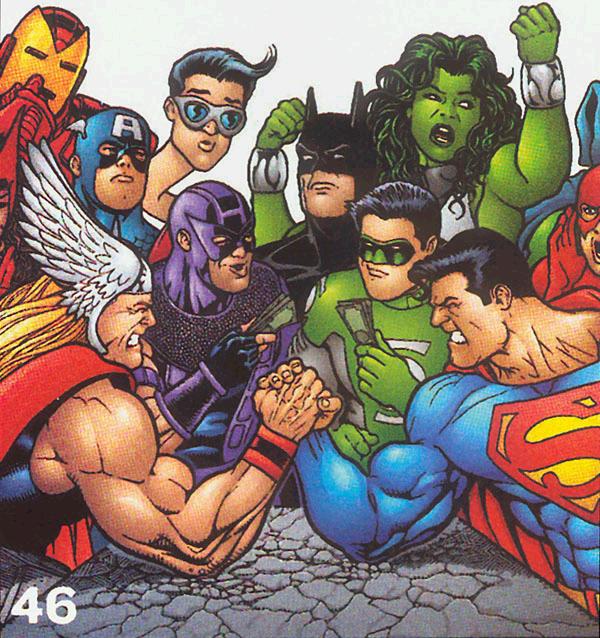
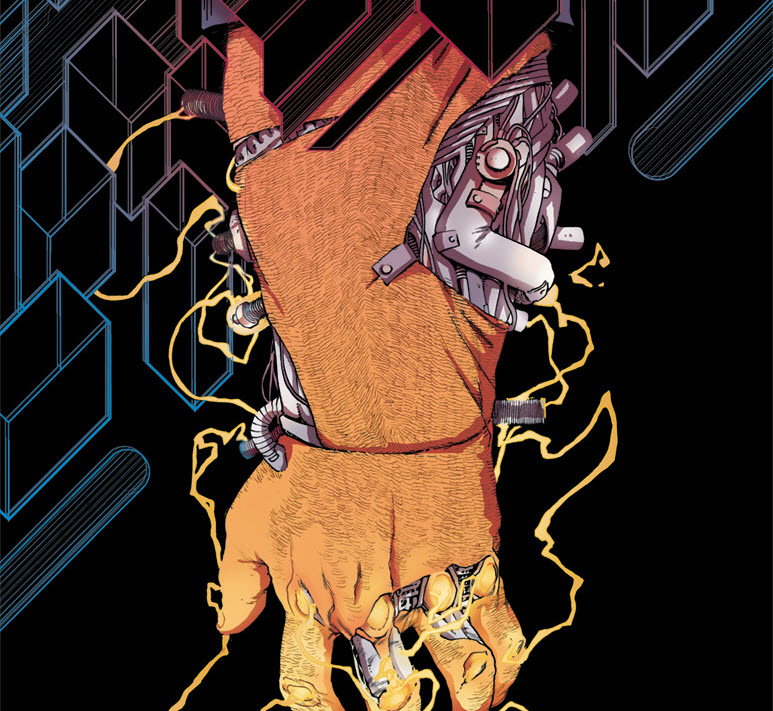
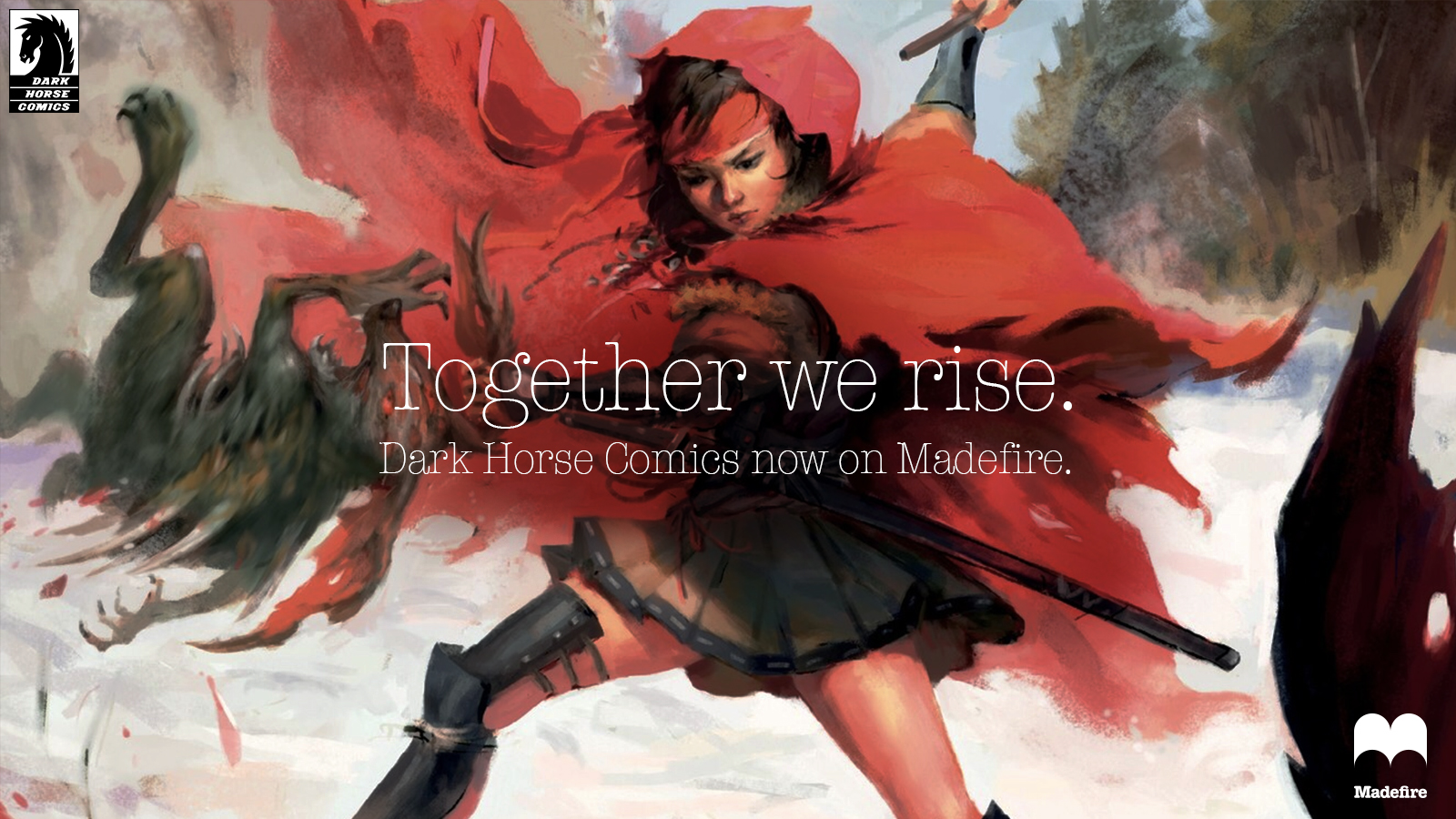

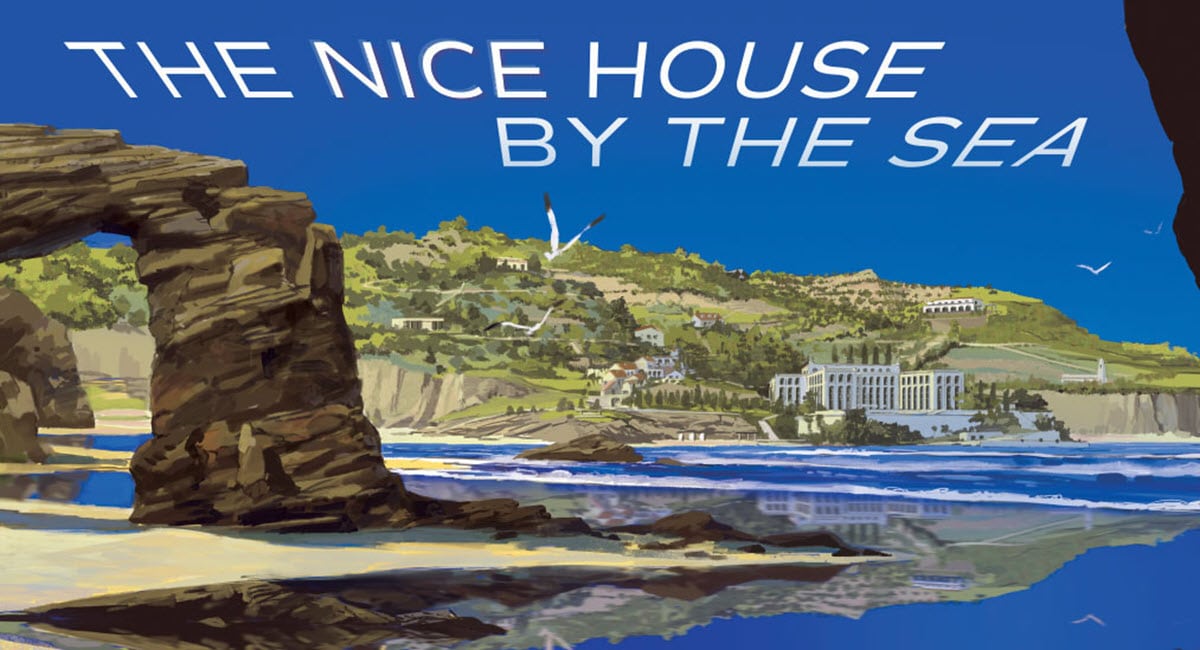
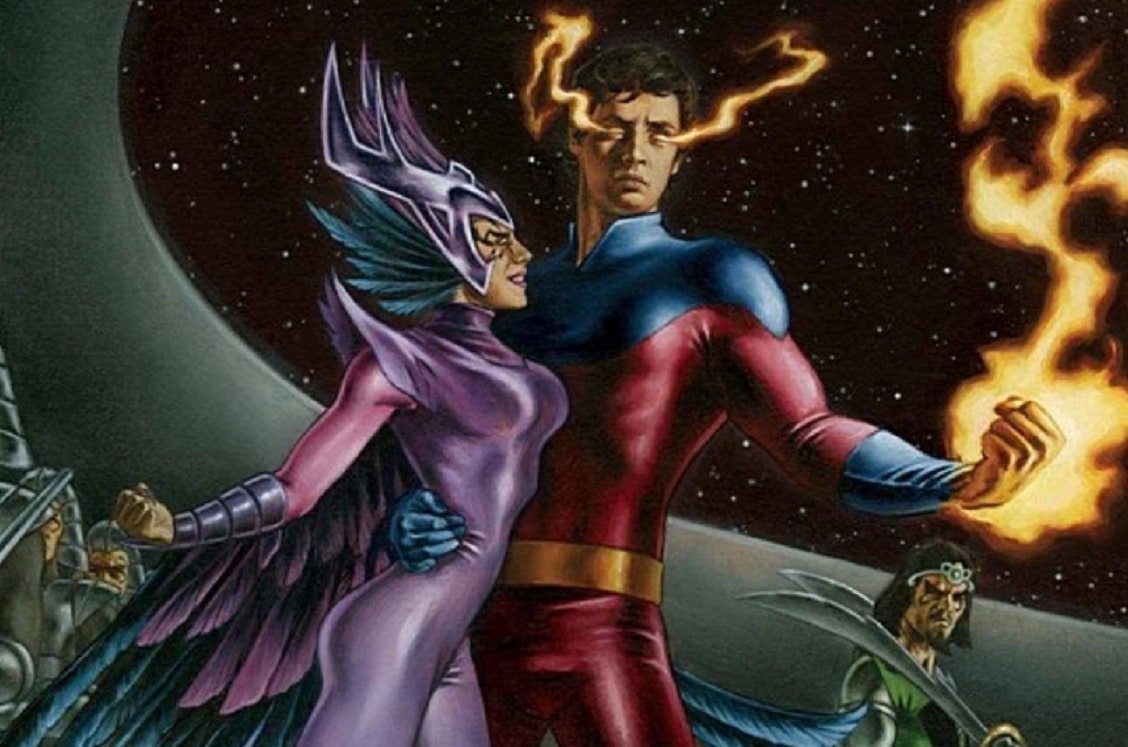
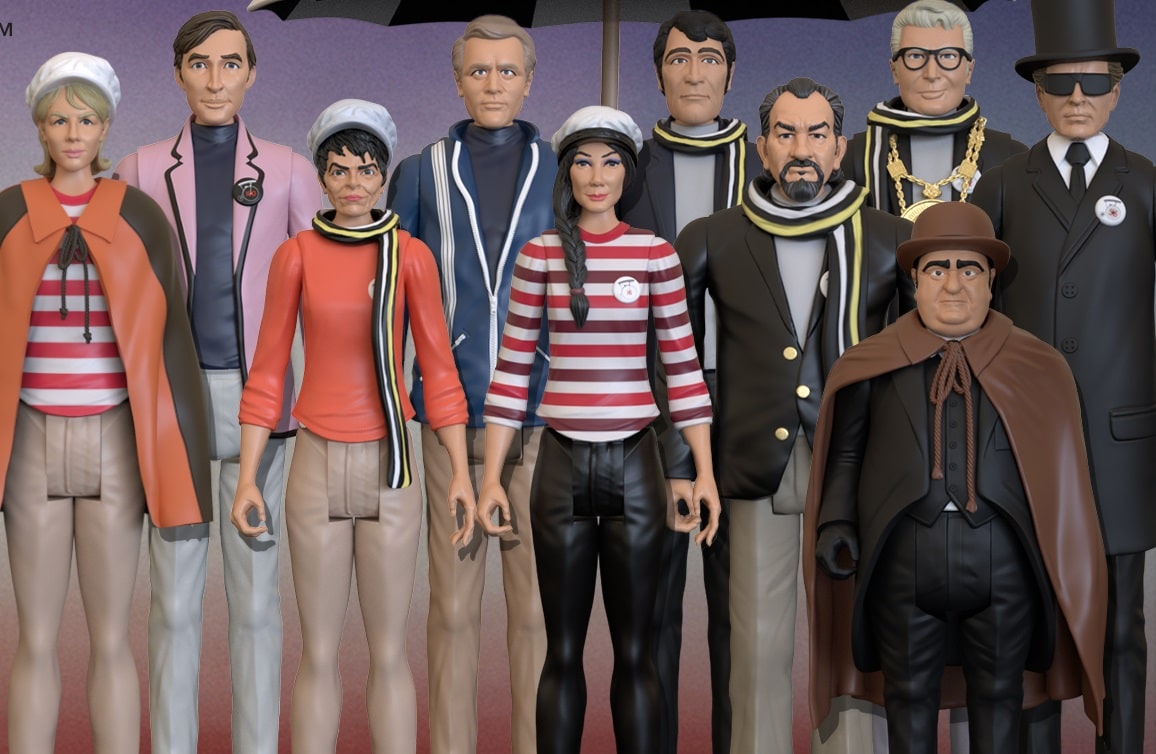

I think you’ve buried the lede here:
“Most importantly, we assure you that your participation in these digital works will be equal to or exceed the participation levels that you currently receive under our additional compensation plan for print.”
So, creators will be paid for digital purchases as much or more than what they’re paid for the print editions.
That makes it worth the creator’s while to encourage their fans to go digital.
There’s a financial question for DC here, too. If they pay print royalties for comics at digital prices (half price, basically), where is that money coming from? Loss leader? Is DC operating digitally without immediate expectation of profit? Do they just not pay out royalties except for the biggest sellers digitally?
Answer one question, raise a bunch more, eh?
This is certainly welcome news for DC creators, who have benefited from DC’s long-standing policy of equitable compensation over the long-term.
Marvel has reproduced works in various electronic formats for years, and I can assure you that my husband hasn’t seen a goddamned dime for any such use of Giant-sized X-men #1 or anything else he ever created for Marvel. Meanwhile, royalties from DC for a relatively minor character got us through the worst of our past 15 months of hell. Until Marvel takes the steps that DC has to compensate the creators who made the company great, all it is doing is blowing smoke. Anyone who thinks Marvel is the better place to work is just deluding themselves.
So who won the arm-wrestle?
Interesting. After a rough couple weeks of bad P.R. for DC, their sudden plunge into digital seems to be revealing existing aspects of their business that (gasp) were really quite progressive.
Probably won’t help our prospects for a DC/Marvel crossover project anytime soon. ;-)
Augie,
Royalties are almost always paid as a percentage rate of either gross or net sales. I think you have to take as fact that “participation in these digital works will be equal to or exceed” is an objective determination based on the rates.
I’d guess that DC’s additional compensation plan refers to such things as foreign reprinting of material. The dollar amounts paid to creators won’t be huge.
SRS
If DC is paying royalties off digital downloads, they’re paying it out of the money from the sales of digital downloads.
We’re talking something like 10-15% of the download price for the creative team (in total), right?
Whether there are minimum sales levels before it kicks in and there’s a formula for print/web levels is a fair question, but the money trail is fairly obvious.
While he has always been friendly to me in the past, why does brevoort always adopt the d-bag role in these inter-company pissing contests?
My foreign royalties on my Vertigo books (a combined 30+ volumes) is a significant part of my yearly income. It’s one of those common sense sorts of things – paying creators for ALL sales, not just sales in one language – that every publisher should be doing.
b
Re: The Cebulski/Brevoort snipe-tweeting:
There was more posted by Brevoort that deserves commentary. After the “back of the line” comment, he went on to write (emphasis mine):
“I don’t like it when they (DC) get press for something that isn’t true. But good on them for entering the digital arena. Not sure what catch-all contract you mean, but yes, Marvel is paying digital incentives.“
As Sean Collins at Robot 6 observed:
“Add it all up and it clearly indicates that some sort of royalty plan is in place at Marvel. But as far as I can tell, aside from Brevoort’s explicit statement, the company hasn’t said word one about it in public, whatever it may be.”
Augie:
There’s a financial question for DC here, too. If they pay print royalties for comics at digital prices (half price, basically), where is that money coming from? Loss leader?
I would guess that DC sees most of the $1.99 that they charge for a digital download. Compare that with print comics, where DC not only has to give Diamond and the retailer their cut (over half of the cover price) but also has to pay for paper printing (and probably shipping from the printer to Diamond, too) and I’m guessing that selling digital at these prices would be much more profitable than selling physical copies at comparable quantities.
“From where we sit, if Marvel and DC want to get into a war over who treats creators better and pays more royalties — it’s one of the BEST thing that could happen for comics.”
Yes. And the more information that is available publicly to creators and prospective creators about the compensation they are entitled to, the better.
So sorry, Marvel, if you don’t tell anyone about the doomsday weapon, it’s not very effective.
But didn’t Brevoort post it a while ago- months- on his formspring account that Marvel was paying digital royalties? I know because it was someone I know that asked the question. I think there might still be more to Marvel’s digital plan for creators than what we know so far. I’m not sure if it is not just structured differently and that works differently for freelance and for exclusive talent.
He did – it was at least a few weeks ago
Marvel not paying foreign royalties and paying for only a few years is really unconscionable and needs to change, particularly as they have these properties making millions upon millions and the Disney deal is finalized. The practice is scummy, pure and simple, and sets Marvel at a distant #2 in terms of the brand.
My 2 cents.
DC still sends their creators comp copies of the books they work on. Marvel doesn’t.
I may be biased though. :)
“[Marvel’s] existing royalty program runs for a few years, as opposed to DC’s which runs in perpetuity.”
Excuse my ignorance, but what does that mean, exactly? If the original work was done more than some number of years ago there’s no royalty? Or when a reprint is published, it only pays royalties for sales in the first few years it’s out?
Let’s just bottom line it here: DC is to comics what Apple is to hardware/software/electronics/media. Marvel is to comics what Microsoft is to hardware/software/electronics/media. DC does it, Marvel sees it or smells it before it comes out and rushes to seem like they thought of it first, while consistently coming up short (or waaaaaaay short).
I’ll not even go into DC – Apple / Marvel – Microsoft in terms of creative thinking. Microsoft = umpteen versions of a word processing software that could have seen it’s last necessary update a decade ago. Marvel = how many ways can we package the letter “X”.
DC=iPhone. Marvel=droid— WE THOUGHT OF IT FIRST!! REALLY WE DID! WE WERE GONNA USE THE TOUCHSCREEN FIRST!! SERIOUSLY! WE DIDN’T SEE THE IPHONE AND THEN RUSH TO CLONE IT!
Royalties. Yes, they are the name of the game for any freelancer. I’m still receiving (on a quarterly basis) payments for work I did for DC (Sandman, Books of Magic, etc.) as far back as 20 years ago. On the Marvel side of the coin they stopped paying any royalties on my Spider-Man graphic novel (Spirits of the Earth) about 3/4s of the way through the print run. Earlier, when I confronted them on their selling publishing rights to LOTS of my creator owned & © pages of my art overseas (from Epic Illustrated), with actual copies in hand, they said, and I quote, “We gave it away.” I wonder which company I might want to work for if I were to do another GN?
otistfirefly:
I don’t want to raise an argument, but I’d just like to point out that the question of the article is not the creative format – in this case the digital format, which Marvel and many other companies actually hopped on BEFORE DC (but DC unquestionably has taken the bigger step, even though they took it comparatively late). The question is the participation plan.
As someone who enjoys a significant amount of Marvel work and has heard from plenty of creators who are nothing but enthusiastic about their work for Marvel – which the above article itself references – it is sad to hear the raw deal they’re evidently getting. I was not at all aware of the nature of Marvel’s royalties program and the comments here from creators are quite the eye-opener.
I would have to raise the idea that Marvel would probably have the harder time paying out royalties since DC can quickly get funding from Time Warner, but as someone pointed out, the Disney deal did just push through. Perhaps they’ve been ironing out a royalty plan as we speak, one that’s being held up because it requires Disney to sign off on it? For the sake of the many, many creators working over there I respect, I should hope so.
I’m slightly baffled by the snarky tone of Marvel’s response here. It’s fair enough to respond that they’ve got a policy too. But DC’s claim was that they were the first to ANNOUNCE such a policy, not that they were the only people thinking about it. To criticise DC for failing to notice an announcement made in passing on Tom Brevoort’s Formspring page seems, shall we say, hypercritical.
Now if colorists could be recognized and included with those royalties you’d have more happy freelancers! :)
I find it amazing to be able to read creators openly discussing a company that appears to be “cheap” with its people.
Short term royalties, no foreign royalties, no communication, on and on.
Does this company not get it, or maybe just not care what its reputation is… it answers to shareholders, I guess.
I also guess it could be a place to make one’s name, sacrificing future royalties, then once established, move on to a more humane or at least ‘lucrative’ destination.
You know, no one’s said anything, but after reading some of the kind words said about him, I wonder if Paul Levitz was involved with DC’s digital royalties policy. It sounds like something he’d do, doesn’t it?
“I would have to raise the idea that Marvel would probably have the harder time paying out royalties since DC can quickly get funding from Time Warner, but as someone pointed out, the Disney deal did just push through.”
There are occasions where payments are made as an advance against future sales — often these are for large projects that require a significant amount of time to complete before anything can be published or sold (and generate revenue), and this is done as a way to pay for the work while it’s in progress.
But I think what we’re discussing here, for the most part, are royalty payments based on sales, for which there would already be a source of revenue.
Add to that, I don’t think either publisher is really in need of a large source of operating income as a back-up. These are the sort of expenses that should be covered as part of the ordinary course of business.
You know what? I like how DC announces they’re going to pay royalties to creators for digital sales–something that’s been a concern for many for a while now–and everyone’s first response is to jump down their backs for saying they’re the first to do it when maybe, but no one’s sure, they aren’t first. Warms my heart, really.
@Sphinx Magoo: It does sound like something Paul Levitz would have been involved with. I believe that when he was in charge and DC was asked about digital comics, the issue of how to compensate the creators was often brought up as a concern they needed to work out first.
“Add to that, I don’t think either publisher is really in need of a large source of operating income as a back-up. These are the sort of expenses that should be covered as part of the ordinary course of business.”
True, but being the smaller company to Time Warner I’d only think it fair for Marvel to try harder at cutting costs and keeping the most they can from the gross revenue.
But all I’m really doing is playing Devil’s Advocate – it does sound like Marvel’s giving its creators the raw end of the deal, especially if it’s true that royalties can cease before the end of a first print run, and if there are absolutely no royalties on foreign sales.
Still, you have to wonder if there might be a financial reason given how many of those who work at Marvel do sound happy to work at Marvel.
Jack Kirby would probably have said he was happy to work at Marvel while he was there.
“True, but being the smaller company to Time Warner I’d only think it fair for Marvel to try harder at cutting costs and keeping the most they can from the gross revenue.”
Wiki says (so take with grain of salt):
Time Warner (formerly AOL Time Warner) (NYSE: TWX) is the world’s second largest entertainment conglomerate in terms of revenue (behind Disney and ahead of News Corporation and Viacom), as well as the world’s largest media conglomerate,
“True, but being the smaller company to Time Warner I’d only think it fair for Marvel to try harder at cutting costs and keeping the most they can from the gross revenue.”
Honestly, I think people tend to overestimate the degree to which DC might rely on it’s corporate parent as sort of safety net. When all is said and done, that division (like any other division) is expected to pull it’s own weight, and do business according to its’ own budgets and cash flow.
Obviously, now that Warner Bros. is more involved than they have been in years past, some things will have changed — but I wouldn’t expect that to mean the WB is alluvasudden sending over buckets of cash to DC. (Same for Disney and Marvel.
I think Marvel just has a different approach to this business, one that manifests itself in many ways, and this is one aspect where the differences are sadly obvious. it isn’t that Marvel doesn’t *have* the cash flow to do right by people who have contributed to it’s success — they just choose not to do so (at least, not everyone).
Tom Brevoort, June 23:
“…but yes, Marvel is paying digital incentives.”
Tom Brevoort, June 26:
“What is there to comment on? We’re paying digital incentives.”
Joe Quesada, June 28:
“If you want specifics, okay I’ll give you one: our first incentive checks for e-comics will be going out sometime right after San Diego Comic-Con.”
I think Marvel needs to take Tom’s Twitter away. I’m sure he’ll spin it as “I didn’t say we’re paying digital incentives NOW, I meant we WILL be.”
No Tom – the question has always been: has Marvel been paying incentives for the past few years that they’ve been doing digital. Really? It’s taking until after San Diego for the first checks to come out?
Creators, if you’re working for Marvel, you’re a sucker.
I haven’t seen anyone make the observation that it may be that when DC says their digital comp package is equal to or greater than their print package, what they mean is percentage-wise, not dollar for dollar.
They couldn’t pay the same royalty, for example, $1 each (way high, but it’s easy to understand), on digital as they pay on print simply because they would see a loss on it. Instead, if they pay 10% as a royalty on whatever is sold, then it’s the same margin for DC, no matter what the price is.
And my 2 cents – I could not agree more with the DC=Apple, Marvel=Microsoft analogy. Brilliant and true!
Comments are closed.